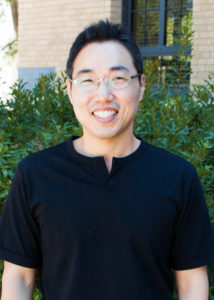
The TEES Center for Nuclear Security Science and Policy Initiatives (NSSPI) is currently hosting the first ever Stanton Nuclear Security Fellow at Texas A&M University. Dr. Seung Min Woo is spending a year with NSSPI researching the value of pyroprocessing to reduce the proliferation risk of closed nuclear fuel cycles. He is working with Dr. Sunil Chirayath, NSSPI director and associate professor of nuclear engineering, and Dr. Matthew Fuhrmann, associate professor of political science.
The Stanton Nuclear Security Fellows program supports young scholars to pursue policy-relevant technical research in nuclear security for a twelve-month period at Texas A&M University under the guidance of faculty members.
Woo’s project attempts to determine how we can assure that pyroprocessing technology is not being utilized to divert nuclear material or to produce special nuclear materials for nuclear explosive devices. It also evaluates the weaknesses of nuclear material accounting for pyroprocessing and suggests improvements.
One suggested method of achieving plutonium accounting for pyroprocessing is using the plutonium to curium-244 ratio to measure the plutonium mass; however, there are significant uncertainties in determining this ratio due to the inherent characteristics of the used fuel. If an insider utilized detailed information about the nuclide non-uniformity to set the plutonium-to-curium-244 ratio, the resulting plutonium mass can be easily over- or under-estimated. Moreover, the value of the curium-244 mass measured by neutron counting could be intentionally manipulated by the removal and replacement of neutron sources. By exploiting these weaknesses in plutonium material accounting, nuclear material could potentially be clandestinely and successfully diverted. Woo’s project evaluates the non-uniformity of nuclide composition in used nuclear fuel using MCNP, uses statistical analysis to evaluate an error of ratio that is evaluated and manipulated using the non-uniform characteristic of used nuclear fuel, and uses MCNP simulations to verify the possibility of replacing nuclear materials with neutron sources to manipulate the curium-244 mass. This study will then be able to estimate the probability that nuclear materials could be diverted using pyroprocessing.
Woo earned a Ph.D. in Nuclear Engineering from the University of California, Berkeley, a master’s degree in Nuclear and Quantum Engineering from the Korea Advanced Institute of Science and Technology (KAIST), and a bachelor’s degree in Nuclear Engineering from the Kyung Hee University in South Korea.